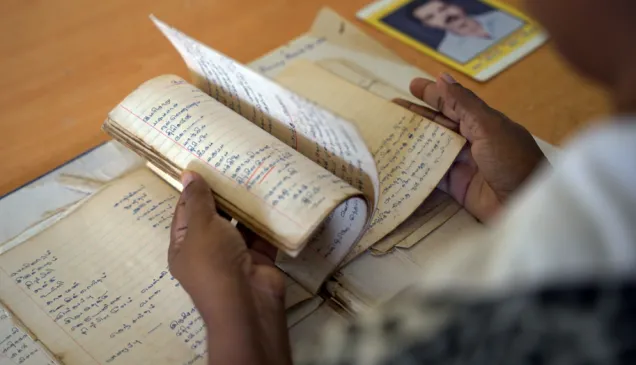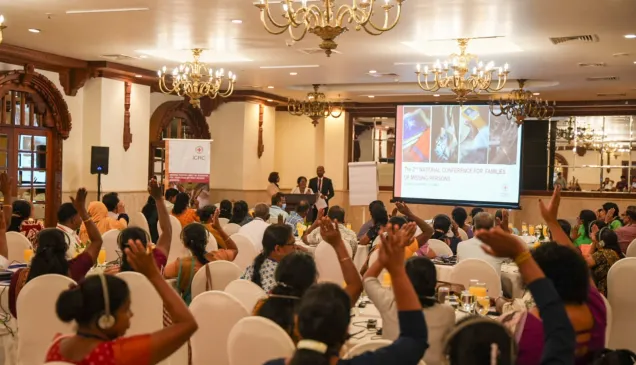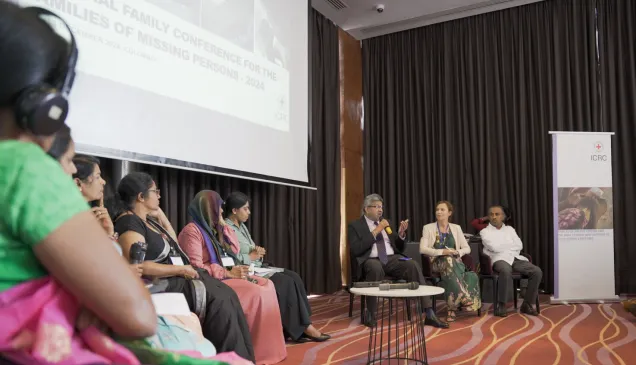Sri Lanka: 9 years on, families of the missing learning to live with loss
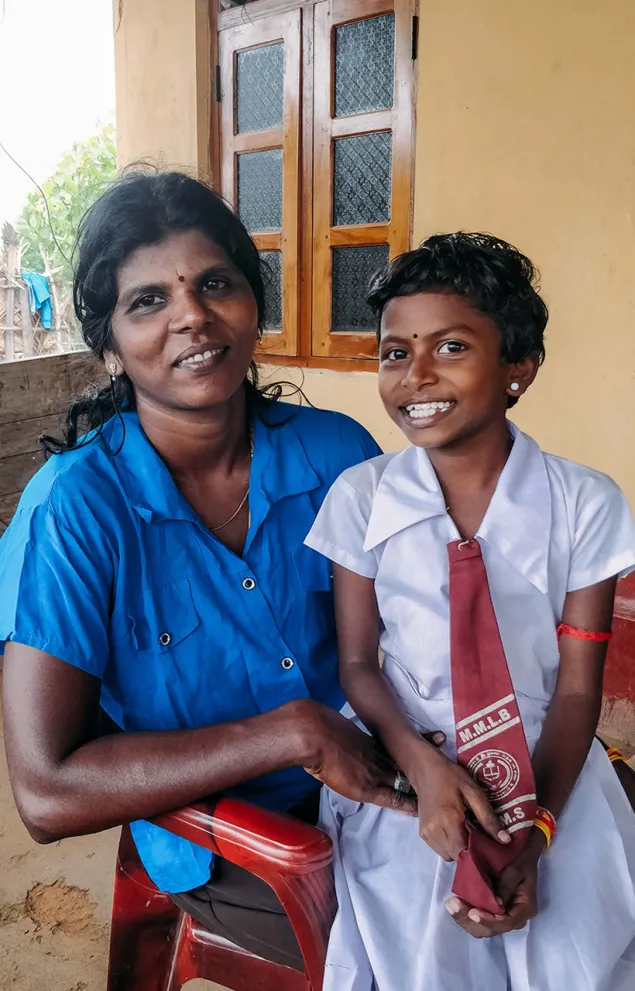
For a long time, Ranjinithevi’s daughter Pavithra thought her maternal grandfather was her father. In the meantime, Ranjinithevi spent large sums of money on fortune tellers to find out the whereabouts of her missing husband.
After several months of support from the Accompaniment Programme, Ranjinithevi was able to come to terms with the absence of her husband. “By attending these group meetings, I am somehow able to cope with the situation,” she said. “I still believe that he is somewhere and will return.”
“For now, my focus is on my children,” she added. “Pavithra wants to become a teacher someday.”
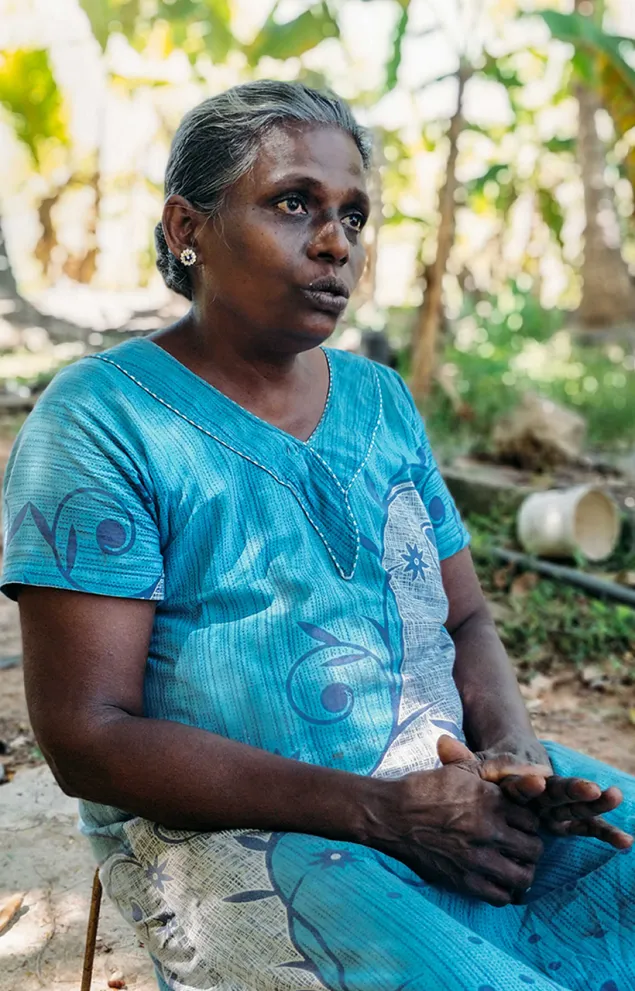
Jeyanayaky
Each time Jeyanayaky meets a new woman, she looks for her missing daughter in their faces. The 58-year-old lost her daughter in 2009 when she was only 16 years old. Since then, Jeyanayaky has lived through a traumatic breast cancer, among other health issues.
Jeyanayaky used to teach pre-schoolers. Now, she is learning to cope with the absence of a missing daughter.
“Interacting with other people in the support group helps my family and I recover the sanity we lost,” she said with tears in her eyes.
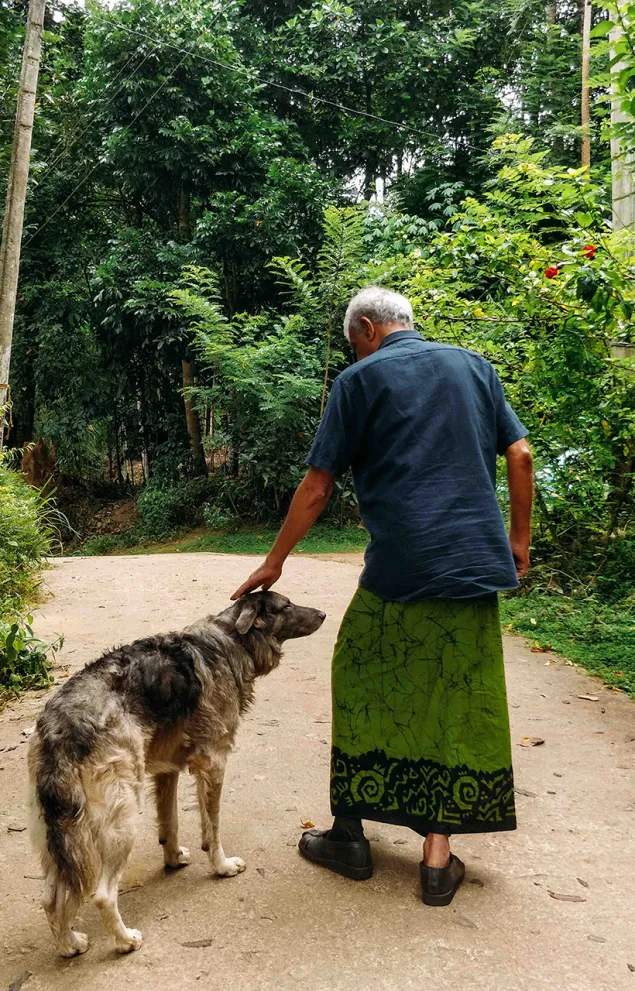
Bandula
Bandula adopted Leo, his dog, a few months back from the army. Adopting Leo, the 68-year-old felt, was a way for him to connect with his son who went missing in 2000, right before he was supposed to receive captaincy. All that the father is left with now is a temporary death certificate.
He receives his son’s pension from the army. It contributes to sustaining the family. “It is painful,” he said with tears welling in his eyes. “Every mouthful of food I eat reminds me of my son.”
Eight years ago, Bandula lost his left foot due to diabetes. He underwent fittings and received a new prosthetic limb from the ICRC recently under the Accompaniment Programme – a peer support group helping families with missing members cope with loss.
“I am also hoping I get a wheelchair someday which will help prevent scabs on my amputated leg,” he said with a wistful look in his eyes.
For now, he has Leo. “Leo is always here,” he added. “He waits with me in the veranda to see my grandchildren return home from school.”
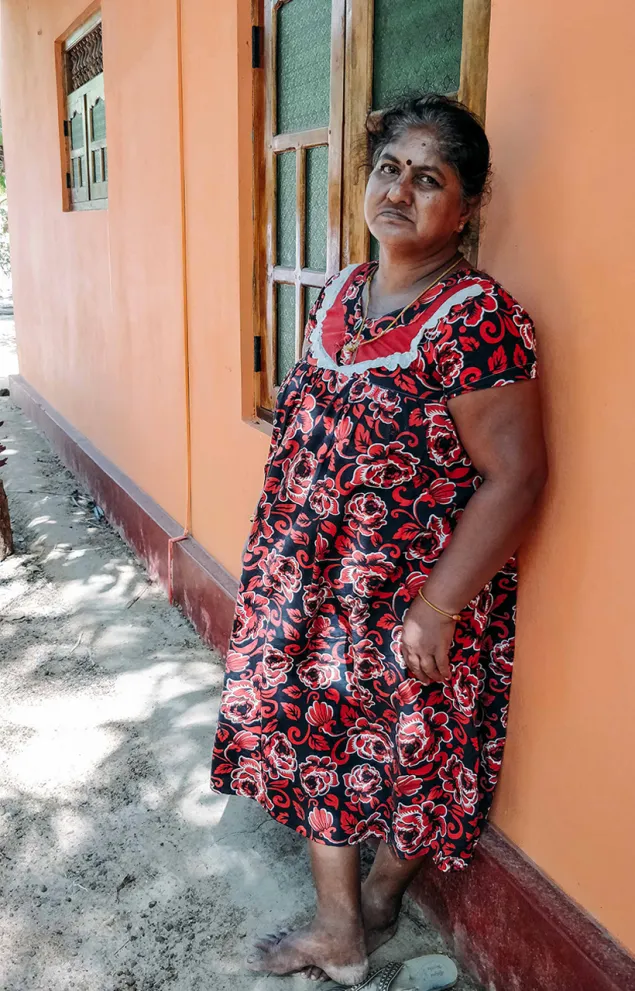
Jeyarani
Both of Jeyarani’s daughters were caught up in the conflict in 2009. The younger one returned a few months later, having escaped her captors, and made her way back to her parents. The elder daughter never made it back. Jeyarani withdrew into herself, refusing to talk to anyone.
She joined the Accompaniment Programme group sessions at the insistence of her husband. Meeting others who were going through similar difficulties was cathartic. The ambiguous loss of her daughter – not knowing if she is alive or not – gnaws at her daily but she is learning to talk about it.
“I believe she will return – someday,” Jeyarani said.
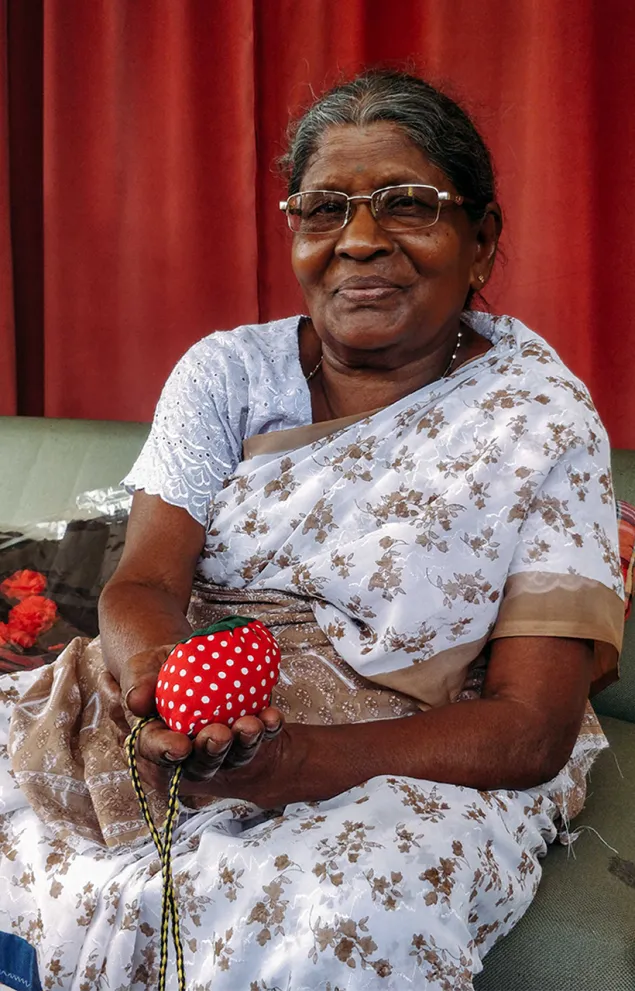
Meenamal
Meenamal helps her daughter-in-law run a small tailoring business. From the bustling markets of Colombo to the sleepy town of Kandy, her creative bags, slippers, paintings and smock dresses are part of an industry of women working on stabilizing themselves after their husbands, who were the breadwinners, went missing.
The 75-year-old is proud of what her daughter-in-law has achieved in the past several years of her struggle. “She comes up with the design ideas,” she explained. “I help her whenever she needs me.”
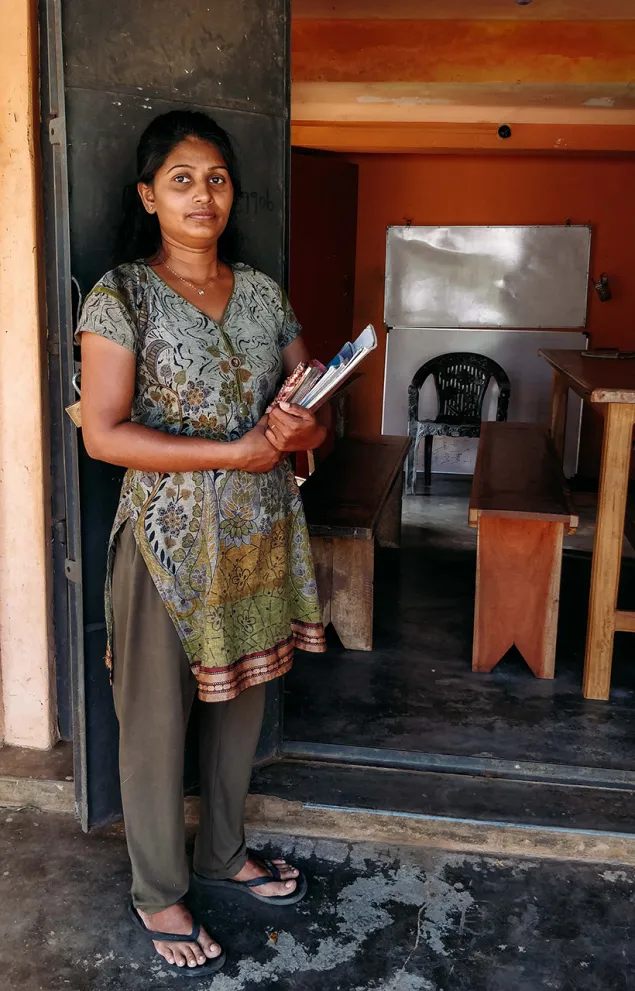
Krishanthy
Krishanthy’s marriage to her Sinhalese husband was frowned upon in her Tamil community. When he went missing in early 2008, she did not receive any support from her family. The young bride was forced to fend for her daughter and herself in the coming years.
“I realized pretty quickly that society does not treat a single mother with much respect,” the 29-year-old said, recollecting the first few years. “I had to learn how to stand on my own feet and take care of my young daughter.”
She now runs a tuition centre for children out of a small rented room in Vavuniya, from where she gives Sinhala and Tamil lessons. The money she earns helps her educate her daughter and pay her house rent.
“I bought benches from the money I received under the Accompaniment Programme,” she said, adding, “It helped me to establish my tuition centre.”
Long after the fighting ends, families continue to search for loved ones who have gone missing during a conflict. They live in limbo not knowing if their relative is alive or dead.
In Sri Lanka, it has been nine years since the conflict ended. But for the families of missing people, the quest for their loved ones, continues. What these families want to know most is the fate and whereabouts of their missing relatives.
These families also need psychosocial support and help with their livelihood, health, legal and administrative matters. In 2015, the ICRC started a comprehensive support programme called the Accompaniment Programme to assist families in overcoming them.
For these families, until they have an answer, the wait for their loved ones will go on.
- The ICRC has a total of 16,000 people still unaccounted for in connection to the conflict
- Over 6,000 families have been provided psychosocial support and more than 1,000 families have been helped with their livelihood since the start of the Accompaniment Programme.
- More than 800 referrals have been made to service providers to help families of missing with their administrative, legal, health and economic needs.

